#rapture and melancholy
Explore tagged Tumblr posts
Text

Edna St. Vincent Millay, from a diary entry featured in Rapture & Melancholy; The Diaries of Edna St. Vincent Millay
#lit#edna st. vincent millay#quote#diary#rapture and melancholy#dark academia#typography#fragments#longing#p
1K notes
·
View notes
Text
I do not think there is a woman in whom the roots of passion shoot deeper than in me. ‘The two elements of passion are rapture and melancholy.’ It seems to me I am that incarnate—rapture and melancholy. I cannot recall a time when either one or the other was not the dominant feeling in me. I am and always have been intense. (…) I have never been indifferent to anything.
Edna St. Vincent Millay, Rapture and Melancholy: The Diaries of Edna St. Vincent Millay
158 notes
·
View notes
Text
I am and always have been intense. I feel intensely every little thing. The most insignificant action is to me symbolic of something tremendous.
— Edna St. Vincent Millay, from a diary entry featured in Rapture & Melancholy; The Diaries of Edna St. Vincent Millay (Yale University Press, March 8, 2022)
#Edna St. Vincent Millay#Rapture & Melancholy#The Diaries of Ednma St. Vincent Millay#intense#sensitive#emotional
24 notes
·
View notes
Text
more words for characterization (pt. 3)
Mentality
abhorrence, absentmindedness, abstraction, ache, aggravation, agonize, alarm, allergy, amazement, angst, anticipation, apathy, assurance, attention, attrition, awe, bathos, behalf, belonging, bitterness, boast, bosom, breast, buoyancy/buoyance, capitulation, care, censure, cheer, clemency, cogitation, comfort, complex, compulsion, conception, confusion, consideration, constancy, content, contrition, corollary, credit, curiosity, darkness, decision, deference, delight, delirium, dementia, dependence/dependency, design, despair, difficulty, disaffection, discipline, discomfiture, discontent, discrimination, disinclination, disorder, disquiet, distraction, disturbance, dolor, dumps, ecstasy, elation, emotion, enjoyment, envy, esprit de corps, exaltation, excitement, exhilaration, expectation, exultation, fat city, felicity, firmness, fog, forbearance, foresight, forgetfulness, frame of mind, free will, fret, frustration, funk, fury, glee, gratification, grief, happiness, heart, heartbreak, heaven, hoopla, huff, humanity, humor, idiocy, impulse, indignity, insight, introspection, jealousy, joy, kick, lament/lamentation, letdown, levity, madness, mania, melancholy, merriment/merrymaking, mirth, monotony, mope, mortification, mourning, nausea, neglect, nervous breakdown, neurosis, objection, observance, obsession, optimism, outlook, panic, paroxysm, pathos, penance, perception, pessimism, pity, Pollyanna, pout, precognition, premonition, presence, psyche, push, qualm, rage, rapture, red herring, rejoice, repent, repose, resent, resignation, resolution, restlessness, ruckus, sadness, satisfaction, security, self-satisfaction, sensibility, sentiment, servitude, simmer, slump, solace, sorrow, soul-searching, status quo, strain, stress, surprise, sympathy, telepathy, temperament, tension, tolerance, torpor, trance, triumph, umbrage, unrest, vanity, waver, wonder, worry, zeal, zest
Attributes of Mentality: aback, absconder, absent-minded, absorbing, accustomed, affected, afraid, aghast, alert, amatory, angry, apathetic, apprehensive, assumed, attentive, averse, bad, beaten, believable, berserk, bewildered, bigoted, bleak, blue, breathless, broad-minded, brokenhearted, burning, captive, cautious, cheerful, chipper, clairvoyant, compassionate, concerned, confused, contemplative, contented, crabby/crabbed, crazy, cross, curious, daffy, dearly, dejected, delirious, depressed, desolate, desperately, disaffected, disbelieving, disconcerted, discontented/discontent, discouraging, disenchanted, disgusted, disillusioned, disinterested, dispirited, dissident, distressed, doleful, dotty, down, downcast, dumbfounded, elated, emotional, enamored, enraged, excited, exultant, fed up, firm, flushed, forgetful, forlorn, frenetic, frightened, fulfilled, furious, glad, gleeful, glum, grateful, grief-stricken, gut, half-baked, happily, hard, hard-boiled, harried, headstrong, heartsick, high, hopeful, huffy, hysterical, ill-tempered, impassioned, inattentive, inconsolable, indifferent, indiscriminate, insane, insecure, intent, interested, intoxicated, irate, irresolute, jaundiced, jovial, joyful/joyous, jubilant, keen, languid, lethargic, livid, lonesome, loony, low, lukewarm, mad, malleable, manic/maniacal, mental, mindful, mirthful, mixed-up, morbid, mournful, narrow-minded, nerveless, neurotic, new age, normal, numb, nuts/nutty, objectivity, observant, obsessed, off-guard, one-sided, on the fence, opposed/opposing, overjoyed, partial, pensive, pent-up, petrified, phlegmatic, platonic, pooped, predisposed, prepared, profound, provincial, psyched, psychological, pumped, punch-drunk, puzzled, rabid, radical, rapacious, realistic, regretful, restless, rigid, rueful, salacious, sanguine, saturnine, sectarian, self-assured, sensitive, sick, skeptical, small-minded, solicitous, sore, sorry, sound, spellbound, steady, strong, stupefied, sulky, susceptible, tearful, tender, testy, thirsty, thoughtless, tired, torn, tough, ugly, unbalanced, uncaring, uncommitted, undecided, unemotional, unfeeling, uninterested, unsound, untroubled, upbeat, versed, wacky, wary, weary, wide-awake, wishful, woebegone, wrathful, wretched
NOTE
The above are concepts classified according to subject and usage. It not only helps writers and thinkers to organize their ideas but leads them from those very ideas to the words that can best express them.
It was, in part, created to turn an idea into a specific word. By linking together the main entries that share similar concepts, the index makes possible creative semantic connections between words in our language, stimulating thought and broadening vocabulary.
Source ⚜ Writing Basics & Refreshers ⚜ On Vocabulary ⚜ Part 1 ⚜ Part 2
#character development#vocabulary#langblr#writeblr#writing reference#spilled ink#creative writing#dark academia#setting#writers on tumblr#poets on tumblr#poetry#literature#writing tips#writing prompt#writing#words#lit#studyblr#fiction#light academia#characterization#writing resources
660 notes
·
View notes
Text


Edna St. Vincent Millay, “Rapture & Melancholy; The Diaries of Edna St. Vincent Millay”
198 notes
·
View notes
Text

The Bells
Edgar Allan Poe (1809-1849)
I.
Hear the sledges with the bells— Silver bells! What a world of merriment their melody foretells! How they tinkle, tinkle, tinkle, In the icy air of night! While the stars that oversprinkle All the heavens, seem to twinkle With a crystalline delight; Keeping time, time, time, In a sort of Runic rhyme, To the tintinabulation that so musically wells From the bells, bells, bells, bells, Bells, bells, bells— From the jingling and the tinkling of the bells.
II.
Hear the mellow wedding bells, Golden bells! What a world of happiness their harmony foretells! Through the balmy air of night How they ring out their delight! From the molten-golden notes, And all in tune, What a liquid ditty floats To the turtle-dove that listens, while she gloats On the moon! Oh, from out the sounding cells, What a gush of euphony voluminously wells! How it swells! How it dwells On the Future! how it tells Of the rapture that impels To the swinging and the ringing Of the bells, bells, bells, Of the bells, bells, bells, bells, Bells, bells, bells— To the rhyming and the chiming of the bells!
III.
Hear the loud alarum bells— Brazen bells! What tale of terror, now, their turbulency tells! In the startled ear of night How they scream out their affright! Too much horrified to speak, They can only shriek, shriek, Out of tune, In a clamorous appealing to the mercy of the fire, In a mad expostulation with the deaf and frantic fire, Leaping higher, higher, higher, With a desperate desire, And a resolute endeavor Now—now to sit or never, By the side of the pale-faced moon. Oh, the bells, bells, bells! What a tale their terror tells Of Despair! How they clang, and clash, and roar! What a horror they outpour On the bosom of the palpitating air! Yet the ear it fully knows, By the twanging, And the clanging, How the danger ebbs and flows; Yet the ear distinctly tells, In the jangling, And the wrangling. How the danger sinks and swells, By the sinking or the swelling in the anger of the bells— Of the bells— Of the bells, bells, bells, bells, Bells, bells, bells— In the clamor and the clangor of the bells!
IV.
Hear the tolling of the bells— Iron bells! What a world of solemn thought their monody compels! In the silence of the night, How we shiver with affright At the melancholy menace of their tone! For every sound that floats From the rust within their throats Is a groan. And the people—ah, the people— They that dwell up in the steeple, All alone, And who tolling, tolling, tolling, In that muffled monotone, Feel a glory in so rolling On the human heart a stone— They are neither man nor woman— They are neither brute nor human— They are Ghouls: And their king it is who tolls; And he rolls, rolls, rolls, Rolls A pæan from the bells! And his merry bosom swells With the pæan of the bells! And he dances, and he yells; Keeping time, time, time, In a sort of Runic rhyme, To the pæan of the bells— Of the bells: Keeping time, time, time, In a sort of Runic rhyme, To the throbbing of the bells— Of the bells, bells, bells— To the sobbing of the bells; Keeping time, time, time, As he knells, knells, knells, In a happy Runic rhyme, To the rolling of the bells— Of the bells, bells, bells— To the tolling of the bells, Of the bells, bells, bells, bells— Bells, bells, bells— To the moaning and the groaning of the bells.

Illustrations by Granville Perkins (1830-1895) and Alfred Fredericks (1853-1926)
Engraved by Jas. W. Lauderbach, 1881
#edgar allan poe#the bells#poem#poetry#granville perkins#alfred fredericks#jas. w. lauderbach#1881#1880s#19th century#19th century art#art#illustration#book illustration#engraving
168 notes
·
View notes
Text

















Edna St. Vincent Millay, from a diary entry featured in Rapture & Melancholy; The Diaries of Edna St. Vincent Millay / Interview with the Vampire 2.06: Like the Light by Which God Made the World Before He Made Light / Carol Rifka Brunt, Tell the Wolves I’m Home / Interview with the Vampire 2.04: I Want You More Than Anything in the World / Sylvia Plath, The Unabridged Journals of Sylvia Plath / Interview with the Vampire 2.04: I Want You More Than Anything in the World / Interview with the Vampire by Anne Rice / Interview with the Vampire 2.04: I Want You More Than Anything in the World / Casings by Ethel Cain / Interview with the Vampire 2.01: What Can the Damned Really Say to the Damned?
72 notes
·
View notes
Text
All the Films in Competition at Cannes, Ranked from Best to Worst
The twenty-two films that premièred in the 2024 festival’s main program offered much to savor and revile.
By Justin Chang May 26, 2024
The seventy-seventh annual Cannes Film Festival came to a startling and joyous conclusion on Saturday night, when the competition jury, chaired by Greta Gerwig, awarded the Palme d’Or, the festival’s highest honor, to “Anora,” a funny, harrowing, and finally quite moving portrait of a sex worker’s madcap New York misadventures. It was startling because the movie, though one of the best-received in the competition, had not been widely tipped for the top prize, which seldom goes to a U.S. film; with “Anora,” Sean Baker becomes the first American director to win the Palme since Terrence Malick did, for “The Tree of Life” (2011), thirteen years ago. And it was joyous not only because the award was bestowed on a worthy and remarkable film but because Baker used the occasion to deliver the best, most eloquent and impassioned acceptance speech I’ve ever heard a Palme winner give.
Reading from prepared remarks, Baker singled out two other filmmakers in the competition, Francis Ford Coppola and David Cronenberg, as among his personal heroes. He dedicated the award to sex workers everywhere, a fitting tribute from a filmmaker who has put their lives front and center, with drama, humor, and empathy, in movies like “Starlet” (2012), “Tangerine” (2015), and “Red Rocket” (2021). He tossed some exquisite shade in the direction of the “tech companies” behind the so-called streaming revolution—including, presumably, Netflix, which came away as one of the night’s big winners; its major acquisition of the festival, Jacques Audiard’s musical “Emilia Pérez,” won two prizes. And, in a moment that drew rapturous applause, Baker delivered a plea on behalf of theatrical films, declaring, “The future of cinema is where it started: in a movie theatre.”
I was fortunate to see all twenty-two films in the Cannes competition on the big screen, projected under superior conditions in houses packed with fellow movie lovers. It’s my hope that, when these movies are released in the U.S., as the great majority of them likely will be, you will seize the chance to see them on the big screen as well—even “Emilia Pérez,” which Netflix may not keep in theatres for long, but whose bold dramatic and stylistic risks have the best chance of winning you over if they have your undivided, wide-awake attention.
I have ranked the movies in order of preference, from best to worst. Here they are:
1. “Caught by the Tides”
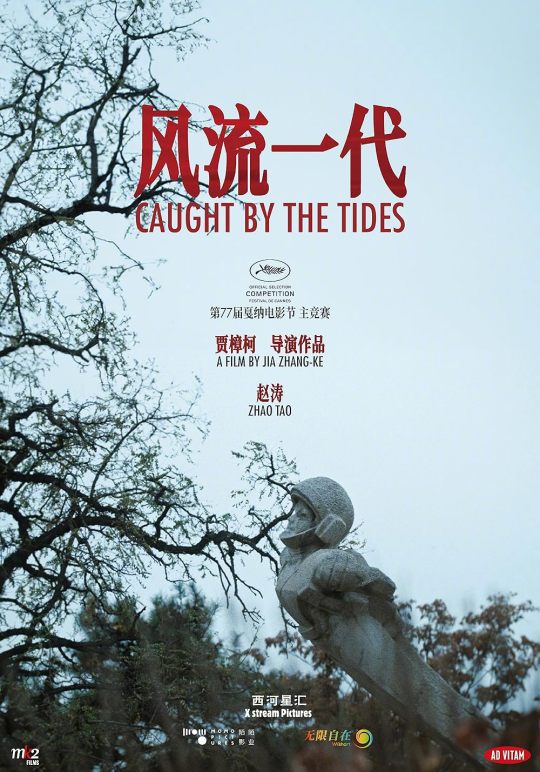
Jia Zhangke, a Cannes competition veteran, has long been the cinema’s preëminent chronicler of modern China (“Mountains May Depart,” “Ash Is Purest White”), mapping its social, cultural, and geographical complexities with great formal acumen, and also with the longtime collaboration of his wife, the superb actress Zhao Tao. Jia’s latest work, drawing on an archive of footage shot in the course of roughly two decades, unfurls a story in fragments, about a woman (Zhao) and a man (Li Zhubin) who fall in love, bitterly separate, and have a melancholy reunion years later. It’s an achievement by turns fleeting and monumental: a series of interlocking time capsules, a wrenching feat of self-reflection, and a stealth musical, in which Zhao dances and dances, standing in for millions who have learned to sway and bend to history’s tumultuous beat.
2. “All We Imagine as Light”
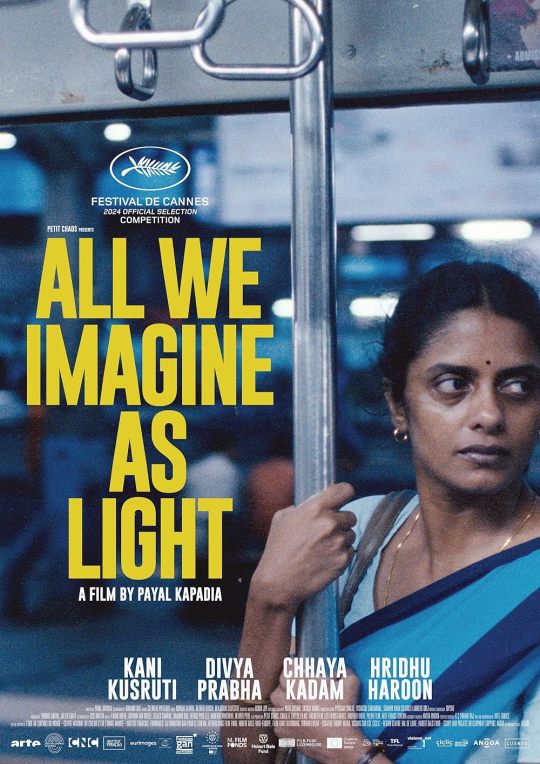
As the first Indian feature invited to compete at Cannes in nearly three decades, Payal Kapadia’s narrative début (after her 2021 documentary, “A Night of Knowing Nothing”) would be notable enough; that the movie is so delicately felt and sensuously textured is cause for outright celebration. Winner of the festival’s Grand Prix, or second place, it tells the story of two roommates, Prabha (Kani Kusruti) and Anu (Divya Prabha), who work as nurses at a Mumbai hospital. It teases out their personal circumstances—Prabha’s estrangement from her unseen husband, Anu’s frowned-upon romance with a young Muslim man (Hridhu Haroon)—with a quiet truthfulness that, like the glittering lights of the city, lingers expansively in the memory. (A forthcoming Sideshow/Janus Films release.)
3. “Grand Tour”
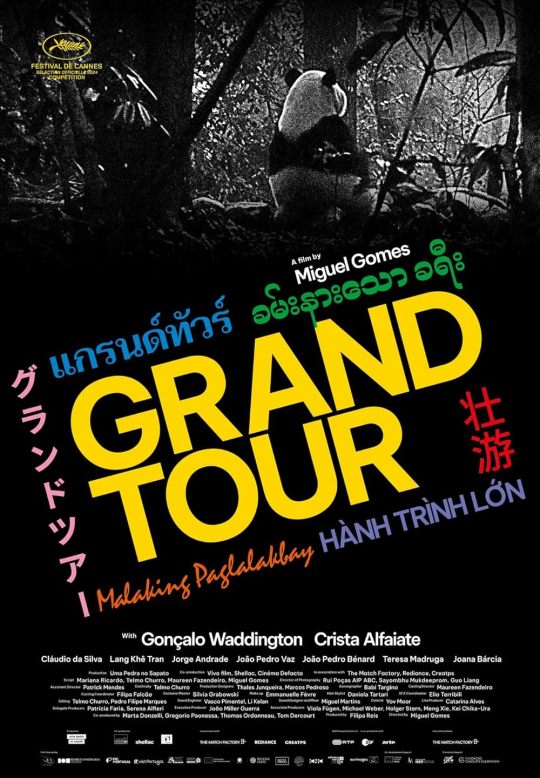
The Portuguese director Miguel Gomes (“Tabu,” “Arabian Nights”) delivered some of the most virtuosic filmmaking in the competition—as the jury recognized by giving him the Best Director prize—with this characteristically yet extraordinarily playful colonial-era travelogue. Shifting between color and black-and-white, set in 1917 but full of fourth-wall-breaking anachronisms, the movie tells a story of sorts about a roving British diplomat (Gonçalo Waddington) and a fiancée (Crista Alfaiate) he’s in no hurry to marry. But its true fascination lies in the humid atmosphere and wanderlust-inspiring splendor of its East and Southeast Asian locations, ranging from Singapore and Bangkok to Shanghai and Rangoon. It’s a movie to get lost in.
4. “The Seed of the Sacred Fig”
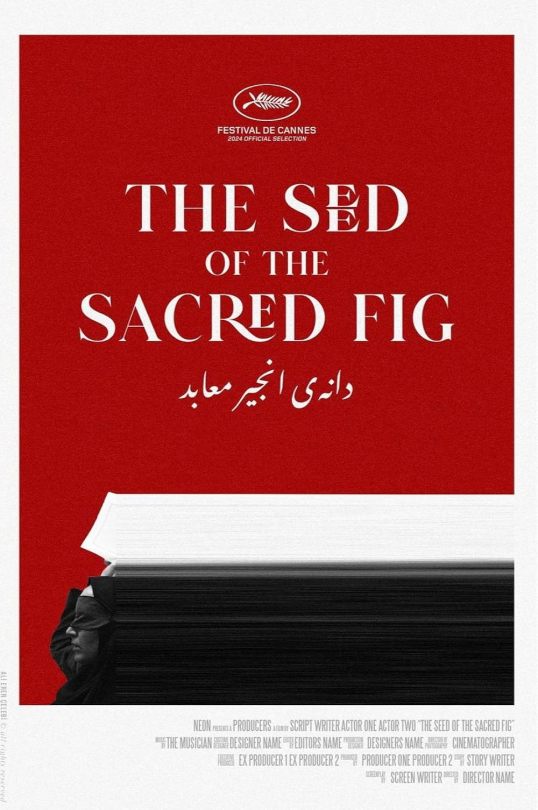
It’s impossible to absorb this blistering domestic drama without thinking of its dissident director, Mohammad Rasoulof, who recently fled Iran after being sentenced to prison and a flogging. (His appearance at his film’s première made for one of the most emotional moments in recent Cannes memory.) Shot entirely in secret, the story follows a Tehran-based husband (Missagh Zareh) and wife (Soheila Golestani) who are increasingly at war with their progressive-minded young-adult daughters (Mahsa Rostami, Setareh Maleki) during nationwide political protests led by women. The result is a thriller of propulsive skill and blunt emotional force, marrying the muscularity of an action film to the psychological intensity of a chamber drama. (A forthcoming Neon release.)
5. “Anora”
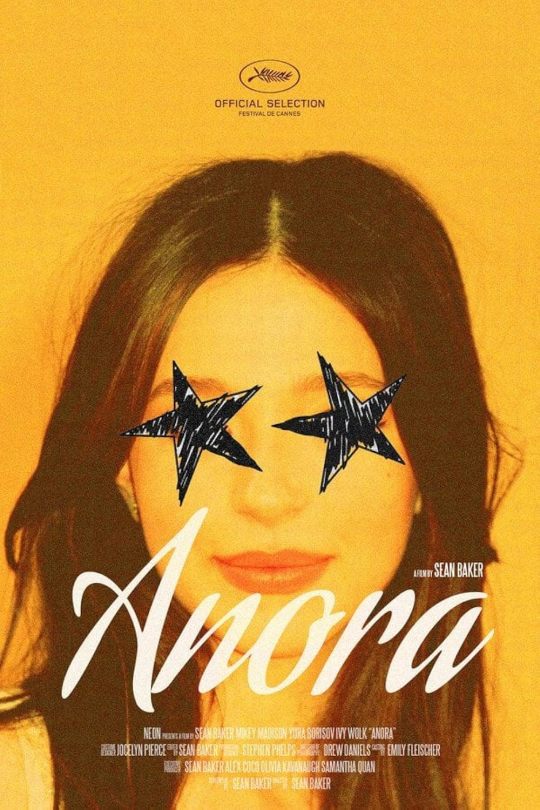
The director Sean Baker is near the height of his storytelling powers with this dazzling (and now Palme d’Or-winning) portrait of a Manhattan strip-club dancer (a revelatory Mikey Madison) who impulsively marries the ultra-spoiled son (Mark Eydelshteyn) of a Russian oligarch. Much comic chaos ensues, some of it pushed past the brink of plausibility, but Baker’s multifaceted love for his characters proves infectious and sustaining, as does his belief that acts of unexpected kindness can redeem even the darkest nights of the soul. (A forthcoming Neon release.)
6. “The Shrouds”
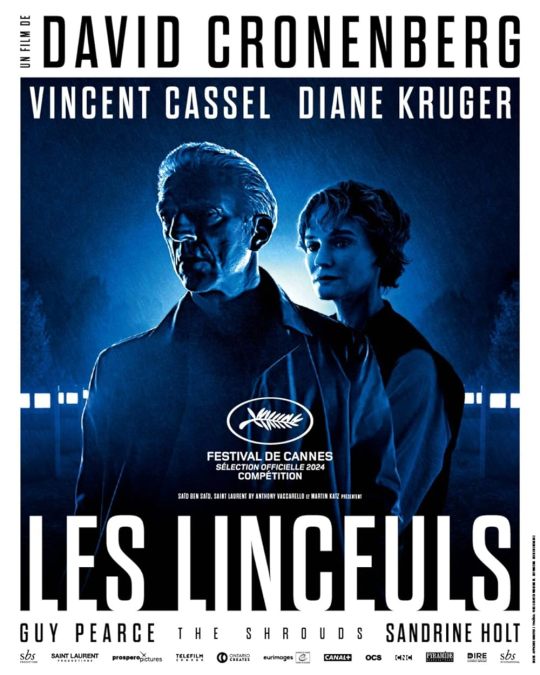
Early on in this elegantly sombre yet mordantly funny new movie, which stars Vincent Cassel, Diane Kruger, and Guy Pearce, the director David Cronenberg, a master of cerebral horror, unveils his latest invention: a technologically advanced burial shroud that allows people to watch a loved one’s body decomposing in the grave. So begins a drolly fluid inspection of classic Cronenberg themes—the deterioration of the flesh, the instability of the image, the paranoia-inducing incursions of technology into every aspect of life—but imbued with a nakedly personal dimension that the director has noted in interviews; the story was inspired by his wife’s death, in 2017, from cancer.
7. “Megalopolis”
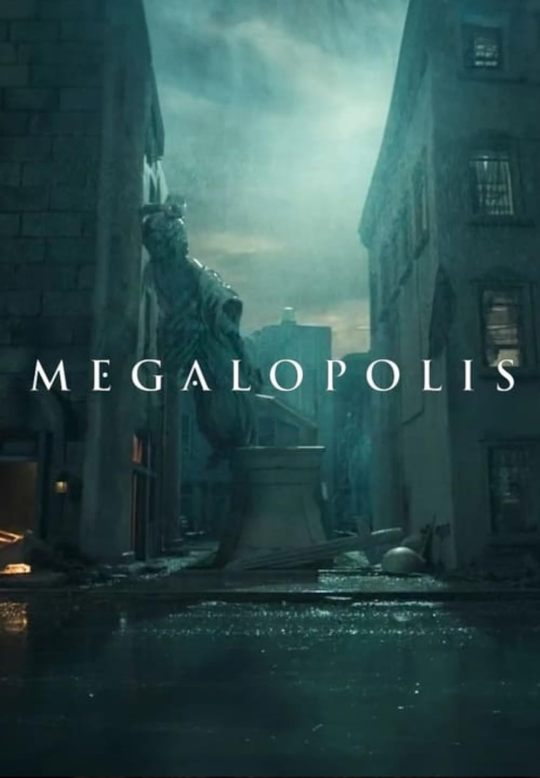
In this legendarily long-gestating passion project, which I’ve written about at length, Francis Ford Coppola posits that our fragile, battered civilization is headed the way of the Roman Empire. The grimness of that prospect is unsurprising from a director accustomed to peering deep into the heart of American darkness (the “Godfather” movies, “The Conversation,” “Apocalypse Now”). For all that, the filmmaking here glows with a particularly hard-won optimism, even a welcome sense of play—borne out by an ensemble of actors, including Adam Driver, Giancarlo Esposito, and especially Aubrey Plaza, who fully embrace Coppola’s rhetorical and conceptual flights of fancy.
8. “The Substance”
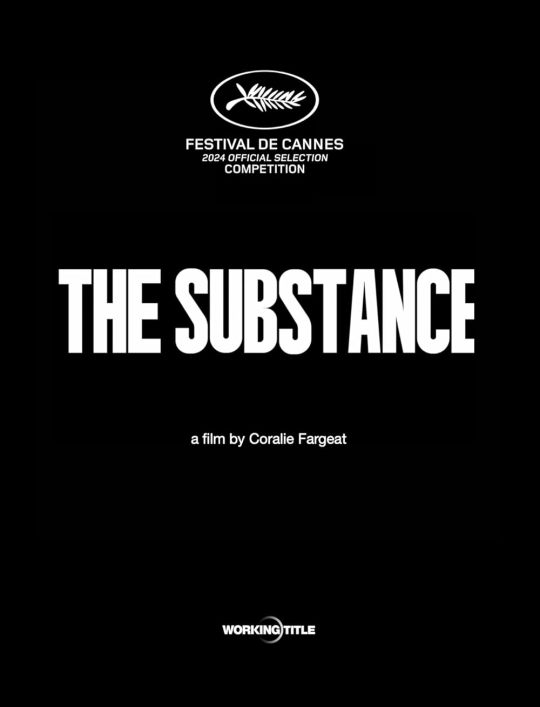
Sympathetic or sadistic? Feminist or misogynist? Coralie Fargeat’s body-horror bonanza, which won the festival’s award for Best Screenplay, has been one of the competition’s more polarizing hits, which is unsurprising; divisiveness should be expected from a story about an aging actress and TV fitness guru who, desperate to regain her youthful bod of yesteryear, effectively splits herself in two. Whether the outlandish premise (think “The Picture of Dorian Gray” by way of “Death Becomes Her”) and its blood-gushing fallout withstand intellectual scrutiny, there’s no doubting the ferocity of the two leads, Demi Moore and Margaret Qualley, or Fargeat’s sheer filmmaking verve as she pushes her ideas to their sanguinary conclusions.
9. “Motel Destino”
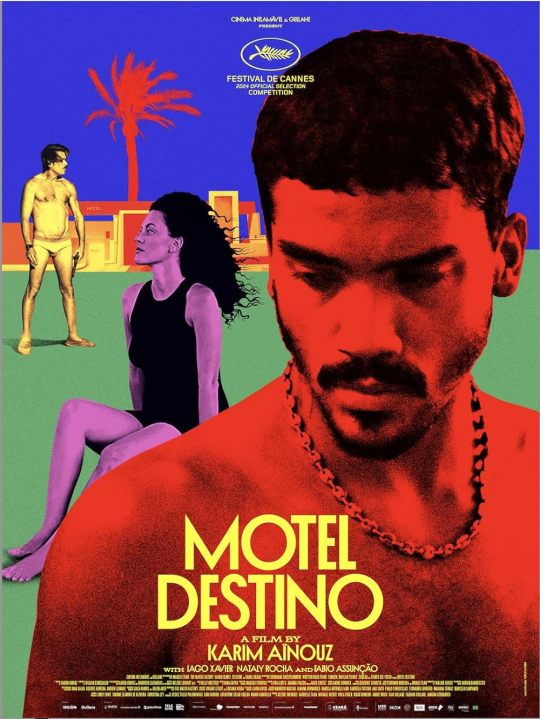
Just a year after the Brazilian director Karim Aïnouz appeared in competition with a surprisingly stiff-corseted English period drama, “Firebrand,” it was bracing to watch him rebound with the competition’s most sexually uninhibited and flagrantly horny title; corsets don’t apply here, and even underwear proves blissfully optional. Set at a seedy roadside motel where the clientele never stops moaning, it’s a feverishly shambling erotic thriller starring three very game actors (Iago Xavier, Nataly Rocha, and Fábio Assunção) in a romantic triangle that plays like James M. Cain with sex toys—“The Postman Always Cock Rings Twice,” as it were.
10. “Emilia Pérez”
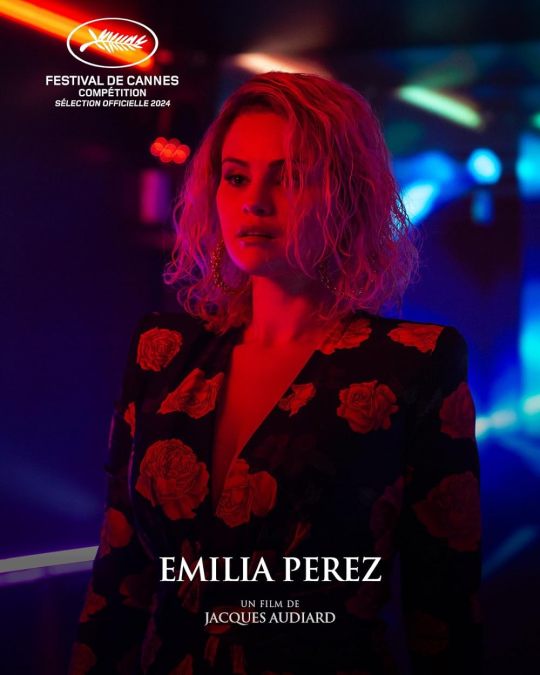
A trans-empowerment musical set against the backdrop of Mexico’s drug cartels might sound like a dubious proposition on paper, and, for the many detractors of this genre-melding big swing from the French director Jacques Audiard (“A Prophet,” “The Sisters Brothers”), what actually made it onto the screen was no better. But I was disarmed from the start by Audiard’s quasi-Almodóvarian vibes, his touchingly imperfect embrace of song-and-dance stylization, and, most of all, his three leads: the remarkable discovery Karla Sofía Gascón, a scene-stealing Selena Gomez, and a never-better Zoe Saldaña. All three (along with Adriana Paz) were recognized with the festival’s Best Actress prize, awarded collectively to the movie’s ensemble of actresses; Audiard also won the Jury Prize. (A forthcoming Netflix release.)
11. “Oh, Canada”
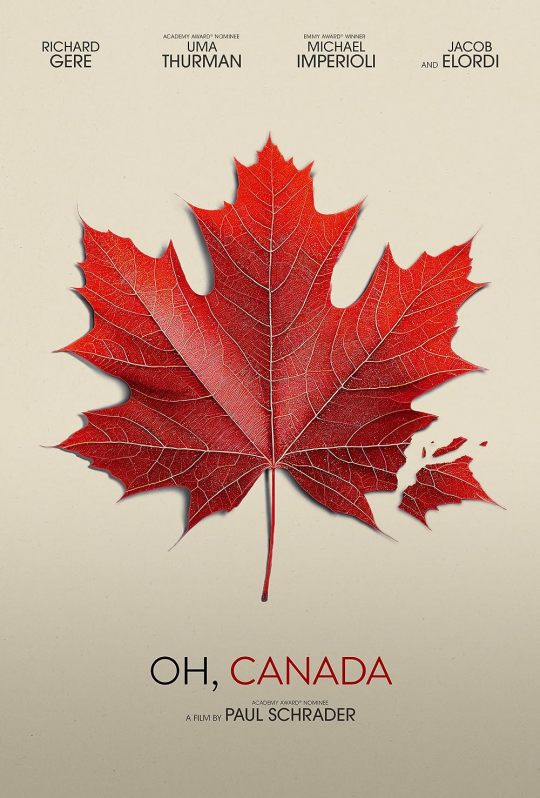
After a tense trilogy of dramas about male redemption through violence (“First Reformed,” “The Card Counter,” “Master Gardener”), the writer and director Paul Schrader has taken a gentler turn with an adaptation of “Foregone,” a 2021 novel by the late Russell Banks. (It’s his second Banks adaptation, after the 1997 drama “Affliction.”) In exploring the fragmented consciousness of an aging documentary filmmaker (played at different ages by Richard Gere and Jacob Elordi), Schrader bravely forsakes the narrative fastidiousness of his recent work and takes on grand themes of memory, mortality, and artistic self-reckoning, to formally ragged but sincerely moving effect.
12. “The Girl with the Needle”
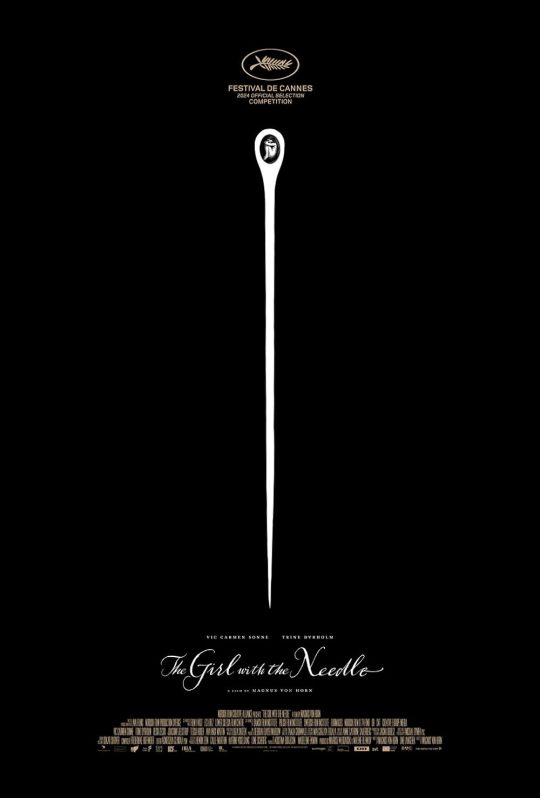
This stark and terrifying black-and-white drama from the Swedish-born, Polish-based director Magnus von Horn (“Sweat”) was perhaps the competition’s bleakest entry. Set in Copenhagen immediately after the First World War, it pins us so mercilessly to the hard-bitten perspective of Karoline (an excellent Vic Carmen Sonne), a factory seamstress who becomes pregnant out of wedlock, that we scarcely notice her story shifting in a different, more sinister direction. It’s a bitterly hard-to-stomach brew of a movie, at once hideous and beautifully made, with a chilling supporting turn by Trine Dyrholm as a friend whose interventions turn out to be anything but benign.
13. “Three Kilometres to the End of the World”
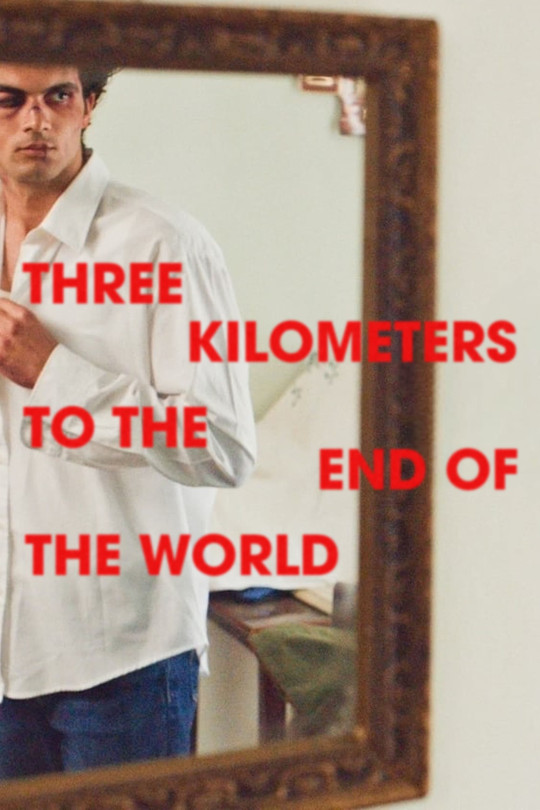
The setting of this well-observed but emotionally opaque drama, from the Romanian actor turned director Emanuel Pârvu, is a small rural village where a closeted teen-age boy, Adi (Ciprian Chiujdea), is brutally beaten after being caught in an intimate moment with a male traveller. Pârvu teases out the legal, psychological, and moral fallout with the pitch-perfect performances and laserlike formal focus that have become hallmarks of new Romanian cinema. But, though the movie is persuasive enough as an indictment of small-town religious fundamentalism and homophobia, it proves curiously incurious about Adi’s perspective, to the detriment of its own human pulse.
14. “Kinds of Kindness”
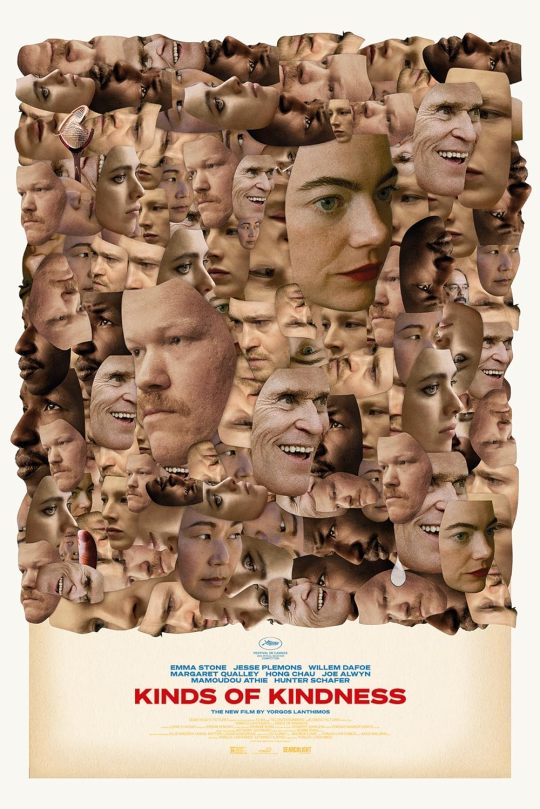
After his Oscar-winning period romps “The Favourite” (2018) and “Poor Things” (2023), the Greek director Yorgos Lanthimos scales back—but goes long—with a sprawling, increasingly tedious compendium of comic cruelty. My favorite of the film’s three disconnected stories, all featuring the same actors, is the one where Jesse Plemons (the ensemble M.V.P., as the jury recognized with its Best Actor award) plays Willem Dafoe’s Manchurian candidate; my least favorite is the one where Emma Stone joins a sweat-worshipping sex cult. The one where Stone slices off her finger and cooks it for Plemons falls—much like the movie in Lanthimos’s over-all œuvre—somewhere in the middle. (A Searchlight Pictures release, opening June 21st in theatres.)
15. “Bird”
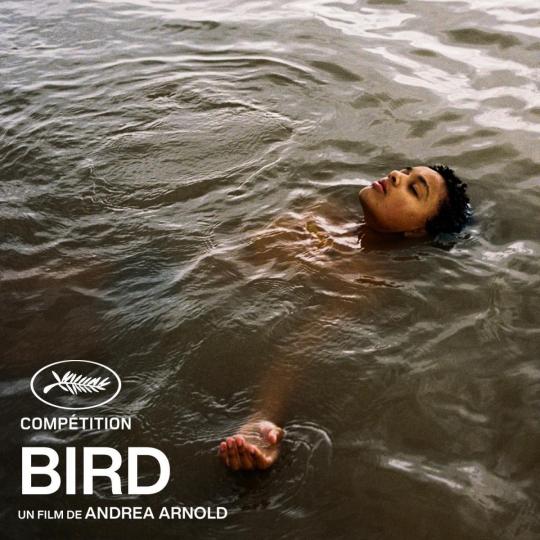
My admiration for the English filmmaker Andrea Arnold (“American Honey”) is such that I’m eager to revisit her latest rough-and-tumble coming-of-age story and find that I undervalued it. Arnold is certainly skilled at integrating recognizable actors, which in this case includes Barry Keoghan and Franz Rogowski, into her grottily realist frames, and she has an appealing lead performer in Nykiya Adams, as a twelve-year-old girl who overcomes persistent abuse and neglect. But the story may lose you—as it lost me—with a magical-realist turn that magnifies, rather than minimizes, the tortured-animal symbolism that has often dogged Arnold’s work.
16. “Beating Hearts”
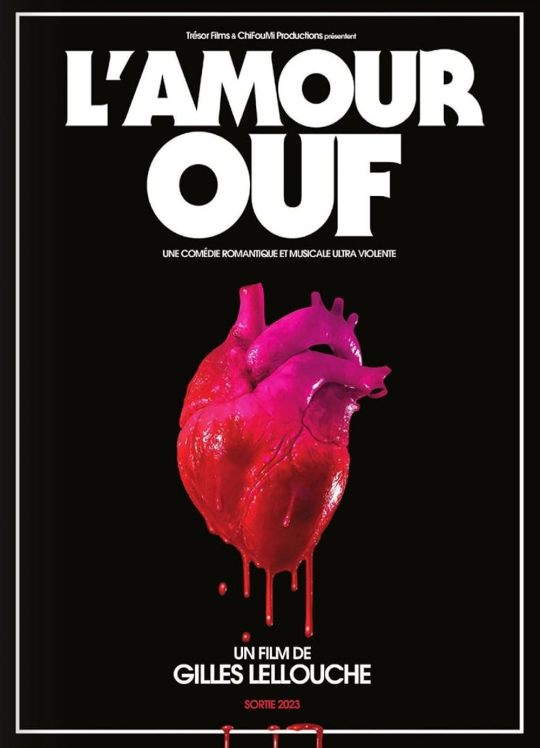
An exchange of insults at a high-school bus stop provides a saucy meet-cute for a good girl (Mallory Wanecque) and a ne’er-do-well boy (Malik Frikah); so begins a raucous and endearing love story for the ages, in which the director Gilles Lellouche, with outsized glee and little discipline, merrily appropriates the conventions of classic Hollywood musicals and gangster flicks. The result is much too long at nearly three hours—the story spans several years, with Adèle Exarchopoulos and François Civil playing older versions of the two leads—but I can’t say I didn’t warm to its rambunctious cornball charm.
17. “Limonov: The Ballad”
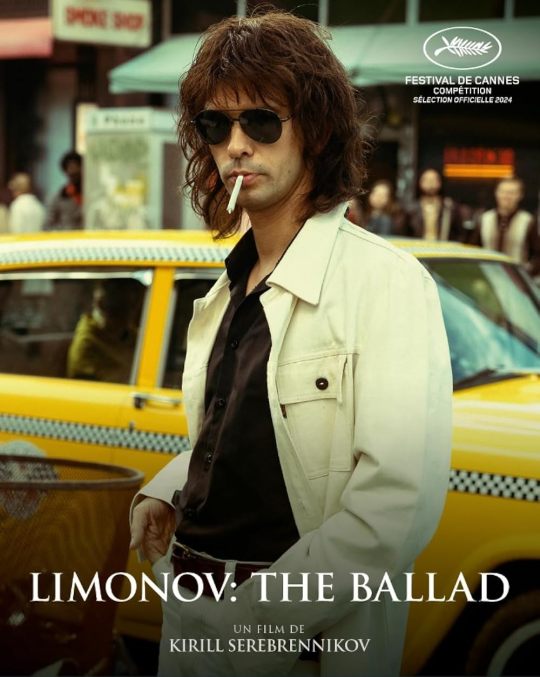
Why make a film about Eduard Limonov, the globe-trotting Russian dissident poet and punk provocateur reviled for his pro-fascist sympathies? The filmmaker Kirill Serebrennikov never musters a satisfying answer in this muddled English-language bio-pic, despite an energetically uninhibited central performance by Ben Whishaw and a cheeky panoply of filmmaking techniques—jittery camerawork, lengthy tracking shots—meant to catch us up in the épater-la-bourgeoisie exuberance of Limonov’s revolt. Considering his earlier work, I prefer the rebel-youth vibes of “Leto” (2018) and the dazzling cinematic assaults of “Petrov’s Flu” (2021), both of which also screened in competition here.
18. “Parthenope”
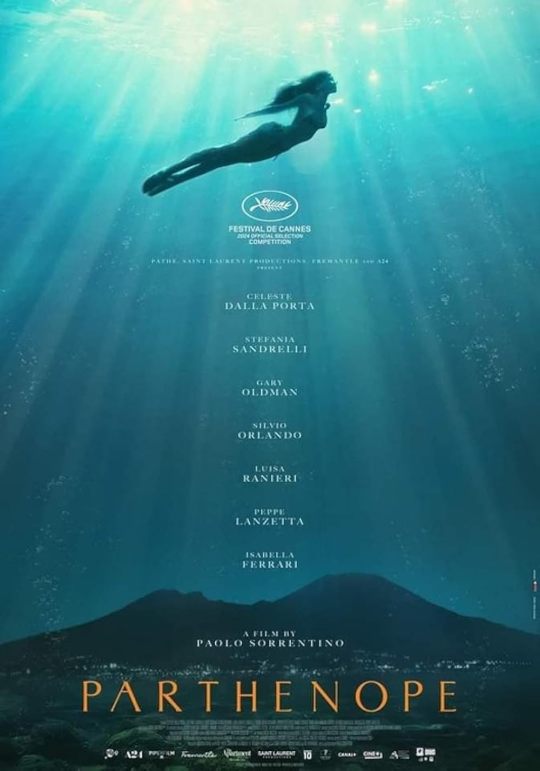
Nearly every new picture from the Italian auteur Paolo Sorrentino could be reasonably called “The Great Beauty,” the title of his gorgeous 2013 cinematic tour of Rome. (It left that year’s Cannes empty-handed, but won the Oscar for Best Foreign Language Film.) His latest work remains most intriguing for its ambivalent but still sensually overpowering vision of the director’s home town, Naples, from which springs a modern-day goddess, named after Parthenope, a Siren from Greek mythology. She’s played by Celeste Dalla Porta, a great beauty indeed and an empathetic screen presence, though only fitfully does her character seem worthy of this movie’s epic enshrinement.
19. “Wild Diamond”
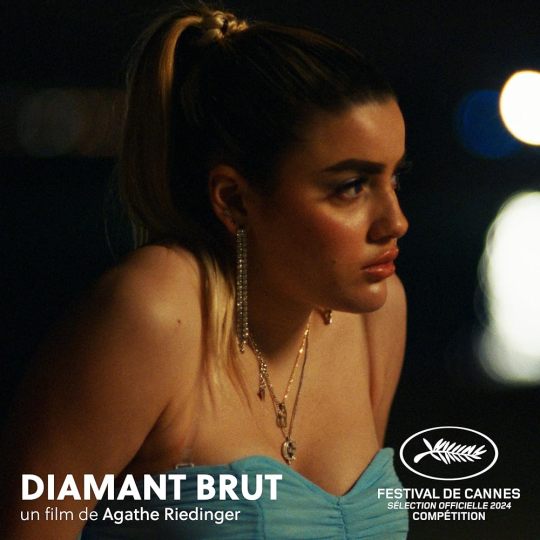
Another disquisition on beauty and its discontents, this time from the débuting French writer and director Agathe Riedinger. She hurls us the life and busy social-media feed of a nineteen-year-old, Liane (a terrific Malou Khebizi), who has nipped, tucked, and tailored every part of herself to realize her dream of being selected for a hot new reality-TV series. Part influencer-culture cautionary tale, part bad-girl Cinderella story, the movie glancingly suggests the soul-rotting effects of beauty worship, but it falls victim to the trap that Liane is trying to avoid: in a sea of worthy candidates, it doesn’t especially stand out.
20. “The Apprentice”
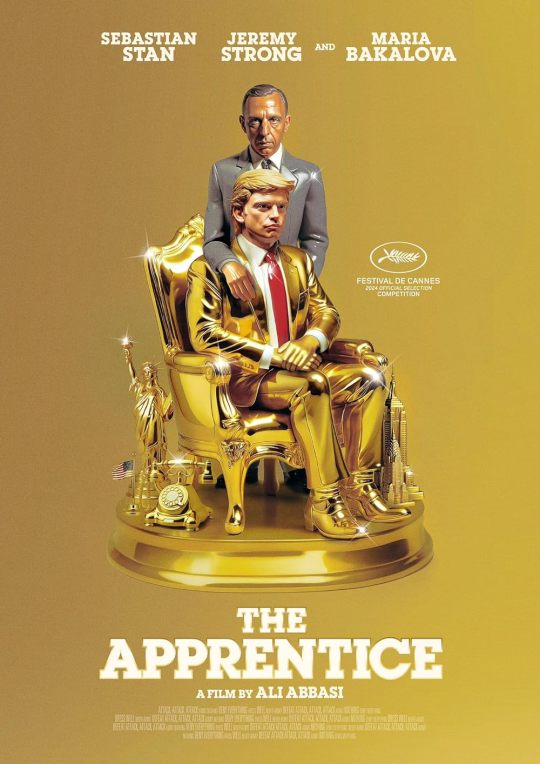
Donald Trump’s attorneys have threatened legal action to block the release of this drama about his early rise to fame and wealth under the mentorship of the attorney Roy Cohn (Jeremy Strong). It speaks to the useless proficiency of Ali Abbasi’s movie that the prospect of such censorship provokes more indifference than outrage. Shot to evoke cruddy nineteen-eighties VHS playback, the movie is well acted by Strong, Maria Bakalova as Ivana Trump, and an increasingly makeup-buried Sebastian Stan as Trump himself, depicted from the start as a sack of shit that gets progressively shittier. It’s not dismissible, but it’s hardly the stuff of revelation, either.
21. “Marcello Mio”
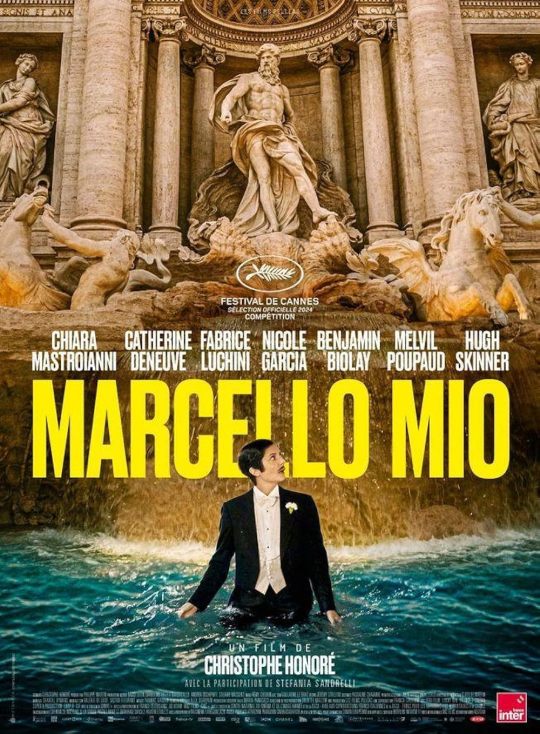
In this trifling meta-comedy from the French filmmaker Christophe Honoré (previously in the 2018 Cannes competition with the lovely “Sorry Angel”), the actress Chiara Mastroianni embarks on a strainedly whimsical personal odyssey to examine the legacy of her late father, the legendary Italian actor Marcello Mastroianni, and her own conflicted place therein. To that end, she spends much of this overstretched movie in “8½” and “La Dolce Vita” black-suited drag as she navigates a roundelay of industry in-jokes; among the French cinema luminaries making appearances are Fabrice Luchini, Nicole Garcia, and, most welcome, Chiara’s mother, Catherine Deneuve.
22. “The Most Precious of Cargoes”
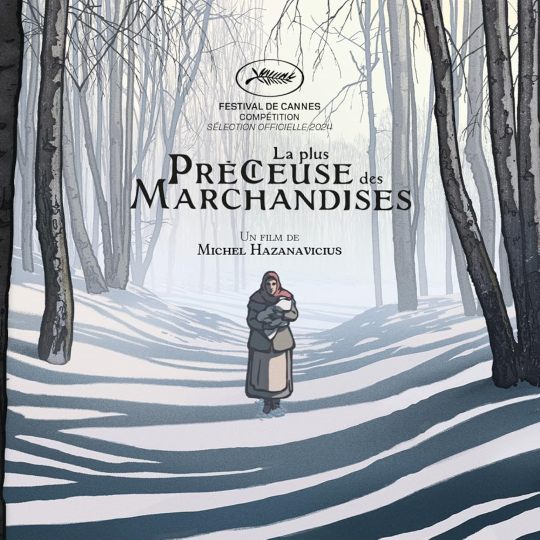
The French director Michel Hazanavicius continues his uneven post-“The Artist” run with this animated Second World War fable, adapted from a 2019 novel by Jean-Claude Grumberg (and narrated by the late Jean-Louis Trintignant). It has an affecting opening stretch, in which a baby girl, thrown by her desperate father from an Auschwitz-bound train, is rescued and raised in secret by a woodcutter’s kindhearted wife. But when the child’s provenance is discovered, stoking local antisemitism, the movie becomes a bathetic wallow in Holocaust imagery, drowned in an Alexandre Desplat score whose every surge turned my heart increasingly to stone. ♦
#Cannes Film Festival#Cannes Film Festival 2024#Youtube#Caught by the Tides#All We Imagine as Light#Grand Tour#The Seed of the Sacred Fig#Anora#The Shrouds#Megalopolis#The Substance#Motel Destino#Emilia Pérez#Oh Canada#The Girl with the Needle#Three Kilometres to the End of the World#Kinds of Kindness#Bird#Beating Hearts#Limonov: The Ballad#Parthenope#Wild Diamond#The Apprentice#Marcello Mio#The Most Precious of Cargoes
94 notes
·
View notes
Text
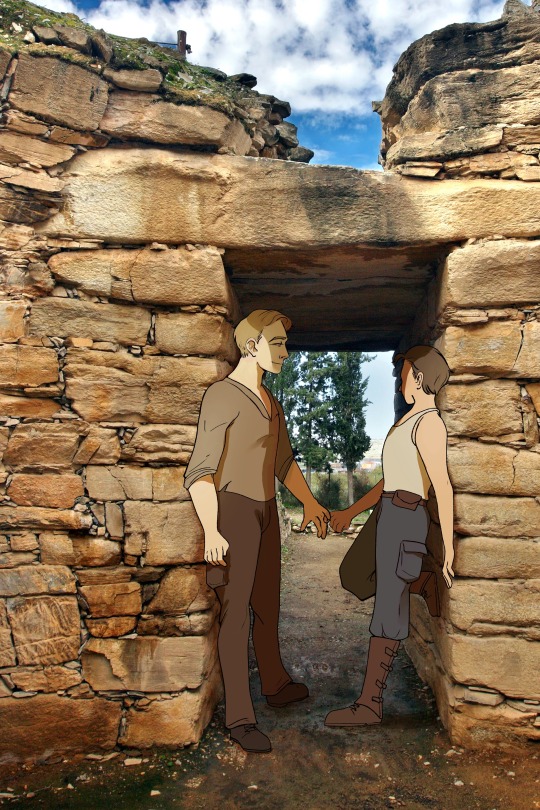
Look what @beardoesdoodles created for The Shield Bearer (E).
Chapter 1 | 2 | 3 | 4 | 5 | 6 | 7 |
(Steve and Bucky catching the sights on a vacation from the war).
Steve eyed the spectacular view with rapturous enthusiasm. Hands on hips in that now-familiar pose, his chest thrown out, it appeared he didn’t have a care in the world. Bucky, of course, knew that wasn’t true.
When he finally spoke, it was melancholy. “Do you think,” he began, allowing his hands to fall to the side and shuffling closer to Bucky. “If there wasn’t a war, and we hadn’t been shipped over here –”
Bucky knew exactly where Steve was going. If they had been themselves, back in Brooklyn, would they have traveled together to Greece to take in the sights?
It was highly unlikely. What, with Steve’s precarious health and him taking his Ma’s death so hard –
“Sure,” Bucky answered before the rest of the question was asked. “I could see us standing here under better circumstances.”
Read on AO3
#stucky#steve rogers#bucky barnes#wwiistucky#howlies#greece#beardoesdoodles#gfawkes#they're so beautiful#love this art style
97 notes
·
View notes
Text
youtube
I was so sure I had posted this, and yet I can’t find it on my blog. I went back watching it and now reposting. Sorry if I had already shared it and I am behaving like a boomer, but it’s such a nice interview.
It has a whole different vibe, it’s really cozy, reminiscing. Almost melancholic, but in a good way.
He recounts their first meeting, remembering their first hug and how it immediately filled him with a sense of warmness. And she says she’s so happy it was him, cause she can’t imagine doing it (this experience) with anybody else.
They talk about the first time they got the call about being the next leads, and their emotions.
I love the way Luke lights up when he talks about Colin and this experience as a whole. He looks like such a nice guy, so open, so generous, so good, deep inside, in the old-fashioned way. Like he has a pure heart. And he has such vibrant clear eyes, so full of life and curiosity, he animates so much when he talks about this season, but at the same time there’s also a tiny shade of insecurity inside them at times, and that is so sweet.
When he says that going back for pick ups was a treat? My goodness you feel like kissing him for such an admission. For such bravery in admitting one’s indulgence in one’s feelings of nostalgia. And Nic goes along saying they both felt kinda sad it was over and to have to say “goodbye”.
I love that he finds this one the steamiest season so far, cause that proves him a very uncommon observer/perceiver. So above range. So subtle in his intakes. He feels so strongly, he can tune in with romantic emotions in such un uncommon way for a man. Although being an actor can obviously help, he comes across as such a delicate soul. One of us, so to speak. And he’s so right. This season is the “steamiest” and not because it has some “visual” quality in it (season 1 was way more smutty) but it is allegedly due to the subtle sexiness of little moments like the when they are talking under the tent and he stares at Pen licking her lips or when he goes to talk to her and can’t see anything but the firmness of her lips or the longing in his eyes, when he enters in their bedroom and can’t help desiring her and he struggles to stay true to his “feelings”. And in turn, the finale, as short as their encounter in the cut, is quite steamy, very passionate: the rapture in his eyes, the way she caresses his chest, how she arches her spine during intercourse, and then reaches forward to get him closer, kissing him full mouth.
I love the way they look in total sync when it comes to their emotions, over anything work related really. The way they seem to finish each other sentences and have a way to foresee where the other is going even before hearing what they are saying. I love how they look e-o in the eyes when answering, as if unconsciously checking to one another to see what the other thinks.
I also noticed when Nicola said she hasn’t been in love since she was 9; it made me think; gave me the feeling she’s very guarded when it comes to love and I can just imagine how’s hard that must be. She comes across as so strong, confident, straightforward and yet when it comes to let one’s barriers down, she’s just one of us.
And the way this chat ends… I mean, the feels... I am believing they are the reason this weird expression boxing with English grammar has been invented. How they acknowledge how nice and kinda liberating it felt talking about this strange kind of melancholy descending upon them when they wrapped the season.
I think it’s my favorite interview so far. IDK it feels so genuine. So not PR. So just them.
Totally madly desperately unrevocably ever so doomily in love with this “couple”.
#lukola#a cab in london#interview#nicola coughlan#bridgerton#luke newton#bridgerton season 3#bridgerton spoilers#Youtube
49 notes
·
View notes
Text

Edna St. Vincent Millay, from a diary entry featured in Rapture & Melancholy; The Diaries of Edna St. Vincent Millay
#lit#edna st. vincent millay#quotes#words#rapture and melancholy#diaries#writings#selection#fragments#typography#p
769 notes
·
View notes
Text

Edna St. Vincent Millay, from a diary entry featured in Rapture and Melancholy: The Diaries of Edna St. Vincent Millay
587 notes
·
View notes
Text
sakura, places, and farewells. [yae miko x f!reader]

a.notes: part 1 of this. could be read as a standalone.

“Where are you going today?” Yae Miko asked, teasing with a lilt of melancholy as she saw you stepped towards the torii gate.
You halted your steps, your hand gripped the only belonging you carried with you—a katana, its broken blade hidden inside its sheath. Your head nearly turned towards the woman who stood behind you, but in an act of cowardice, you stopped midway. “Somewhere. I don’t know yet. I couldn’t stand it here.”
Miko hummed absentmindedly. Without seeing her, you could imagine her figure leaning to the pillars, her head looking upwards gazing upon the falling petals. Just like always, unchanging and brazen, yet still carrying an irreplaceable loneliness with her. “I see,” Miko said along with a long sigh. “Is it because of Ei?”
You stayed silent for a moment. You dared not to answer nor to imagine your old friend’s face. Once again, you chose to not meet the truth, “I wonder. Perhaps it’s just a mere wanderlust, a mindless choice that I chose to take in a wistful manner.”
A laugh resounded upon your respond. “Is that so?” Miko cackled, yet somehow remain graceful. It remained for a while, before softly, slowly, her laughter ceased. “Should I wait for you to come home, then?”
“…please don’t,” you said, unable to give her a promise. “I don’t… exactly know when I will return.”
Or if I will return.
Those words hung in the air, unsaid yet present.
A silence descent upon the two of you. Perhaps it was cruel of you to leave Miko alone despite everything. Once again, you let her lose another companion in her long life.
A part of you expected her to finally walk away. The sounds of her steps going away from you, letting you go without any farewell nor any sadness left. It would be better like that perhaps, as you are merely a coward who chose your own selfishness over her and Inazuma.
Yet, what cut the stillness you held as a shield was a gentle sound of a wind. The Guuji of the Narukami Shrine put her hand beside you before you knew it, then turned you to meet her gaze with an enigmatic smile.
A goodbye and a hope twinkled under her eyes as she slipped an unopened sheet of fortune to your hand, no longer intertwined with the hilt of of your blade but with her fingers. “You do understand hearing that only will make me wait for your return more, right?” Miko laughed, as if today was just another day for her. That today, you would came to her side and chatter senselessly, sharing joy and troubles alike.
“Miko…” you wished to avert your gaze. A futile attempt, perhaps, as it was Miko who held your hand tightly. A wordless attempt to greet another separation with rapture.
“Take this as my well wishes,” Miko said, finality lacing her voice. “I will be here until you came. What came after that…”
Her words trailed off, her fingers letting go of your hand. She took a step full of a fox’s mischief, then bid you one last glance—fond and longing, but accepting.
“I suppose, we will find out when the time comes.”
You gazed at her, enchanted yet again. A few beat passed, then you gave her a loving smile. “I suppose. Then, see you, Miko.”
Miko chuckled as the two of your turned away from each other.
“See you too, Dearest.”

#genshin impact#genshin x reader#genshin imagines#light angst#i think#yae miko#genshin yae#yae miko x reader#yae miko imagines#there will be a part 2#once i figure out how hyperlink works here i think im close
85 notes
·
View notes
Text
There they stood […] intoxicated with rapture and sorrow in the poisoned Garden, in the shade of those mysterious plants, where the lifeless moon mingled the poison of its melancholy with the toxic breath of earthly, evil flowers. They looked into each other’s eyes.
— Fyodor Sologub, The Dedalus Book of Russian Decadence: Perversity, Despair and Collapse, transl by Kristen Lodge, Margo Shohl Rosen & Grigory Dashevsky, (2007)
#Russian#Fyodor Sologub#The Dedalus Book of Russian Decadence: Perversity; Despair and Collapse#Kristen Lodge#Margo Shohl Rosen#Grigory Dashevsky#(2007)
16 notes
·
View notes
Text
Boygenius Are Right at Home at Madison Square Garden

Boygenius – Madison Square Garden – October 2, 2023
Boy (!), did these people love those people. These people were all of us — the assembled throng at Madison Square Garden on Monday night, anyway — deeply enthralled by what was occurring on the stage and the vibe filling up the whole place. Those people were boygenius — the inspired supergroup comprising Lucy Dacus, Julien Baker and Phoebe Bridgers — headlining there for the first time and completely owning it.
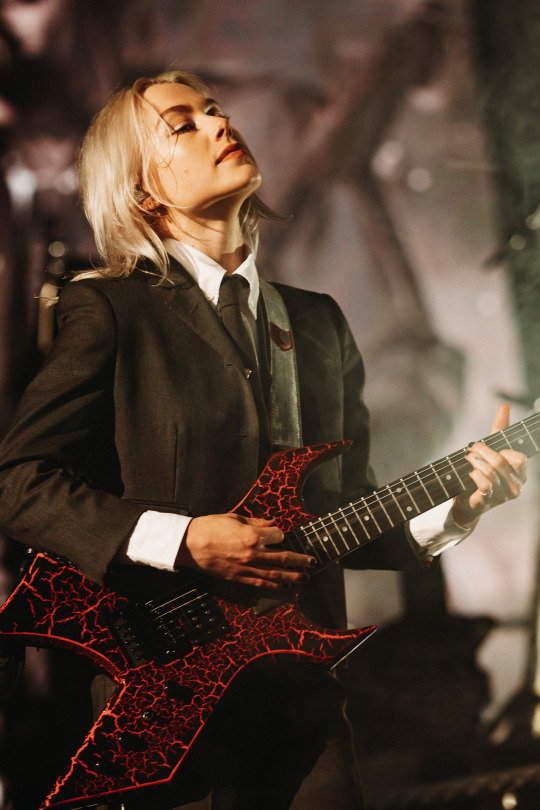
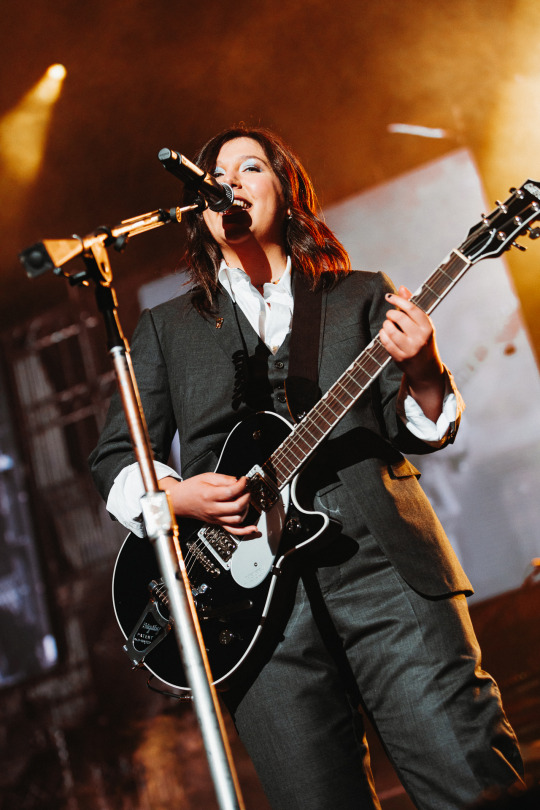

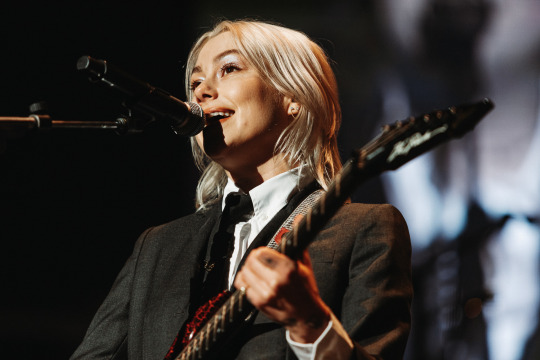
Supergroups are usually good-natured stunts, or at least don’t feel set up for any kind of real longevity. Boygenius, on the other hand, are convincingly a band. The three principals share an affinity for the space where open-armed, melancholy, confessional folk-rock meets steely, fist-pumping resolve, and while their individual styles are different, boygenius are the through line among them where somehow all this deeply intimate, soul-bearing music translates to a huge stage, way bigger than its individual parts, losing none of its quietly (and sometimes un-quietly) devastating power.






They began the set a cappella, singing “Within You Without Them” from backstage in gorgeous three-part harmonies, like a next-generation Emmylou Harris/Alison Krauss/Gillian Welch. From there they took the main stage to rapturous applause in front of a sturdy four-piece band — drummer Madden Klass, bassist Tiana Ohara, keyboardist Sarah Goldstone and well-utilized multi-instrumentalist Melina Duerte — and sliced into “$20” and “Satanist,” both full-throated rockers, sometimes with screams, as if to remind us that despite sometimes-delicate music, this would not be a delicate show.
Throughout it, boygenius proved masters of balance. The three-part harmonies returned to great effect on tunes like “True Blue.” Each took multiple turns singing lead vocals, drawing briefly from their own catalogs — Baker’s “Favor,” Bridgers’ “Graceland Too,” Dacus’ “Please Stay” — but focusing largely on the already-formidable boygenius catalog — the tender, ethereal, pained “Emily I’m Sorry,” the heavy “Bite the Hand,” the stirring “Me and My Dog,” all highlights.

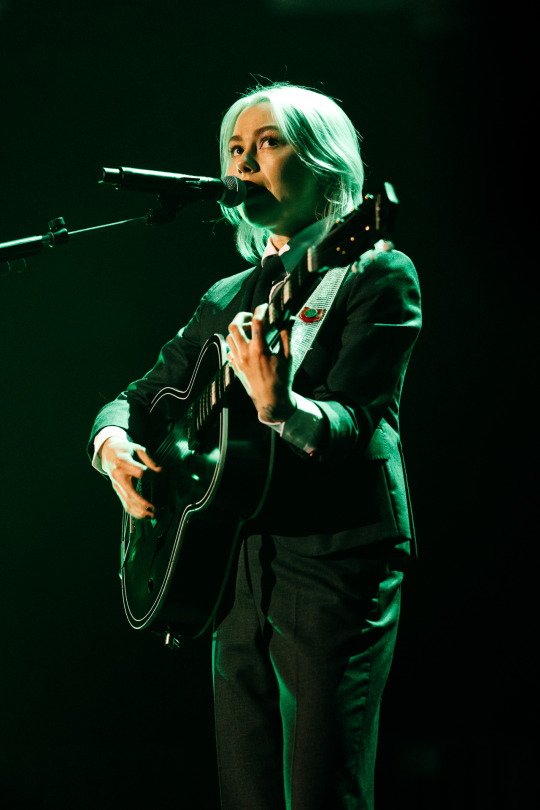


There were newer songs, too: The set closed with “Powers,” debuted a few nights earlier in Philadelphia and one of four tunes the band played late in the show from a B-stage, immersing in the audience — endlessly, that joyful, triumphant vibe. Joined by opener MUNA for the final encore, “Salt in the Wound,” boygenius left us feeling benedictory — take these good feelings and embrace them for how beautifully raw they really are. —Chad Berndtson | @Cberndtson
Photos courtesy of Grayson Wise | @grayokay
#Bowery Presents#Boygenius#Chad Berndtson#Emmylou Harris#Gillian Welch#Grayson Wise#Julien Baker#Lucy Dacus#Madden Klass#Madison Square Garden#Melina Duterte#MUNA#New York City#Phoebe Bridgers#Photos#Review#Sarah Goldstone#Tiana Ohara
65 notes
·
View notes
Text

‘Oh my Father, Lord of Silence, Supreme God of Desolation, though mankind reviles yet aches to embrace, strengthen my purpose to save the world from a second ordeal of Jesus Christ and his grubby mundane creed. Two thousand years have been enough. Show man instead the raptures of Thy kingdom. Infuse in him the grandeur of melancholy, the divinity of loneliness, the purity of evil, the paradise of pain. What perverted imagination has fed man the lie that Hell festers in the bowels of the Earth? There is only one Hell, the leaden monotony of human existence. There is only one Heaven, the ecstasy of my Father's kingdom.’
‘Nazarene, charlatan, what can you offer humanity? Since the hour you vomited forth from the gaping wound of a woman, you've done nothing but drown man's soaring desires in a deluge of sanctimonious morality. You've inflamed the pubertal mind of youth with your repellent dogma of original sin. And now you absolve in denying them the ultimate joy beyond death by destroying me? But you will fail, Nazarene, as you have always failed. We were both created in man's image, but while you were born of an impotent God, I was conceived of a jackal. Born of Satan, the desolate one, the nail. Your pain on the cross was but a splinter compared to the agony of my father. Cast out of heaven, the fallen angel, banished, reviled. I will drive deeper the thorns into your rancid carcass, you profaner of vices. Cursed Nazarene. Satan, I will avenge thy torment, by destroying the Christ forever.’
— Damien Thorn (portrayed by Sam Neil), Omen III: The Final Conflict (1981), directed by Graham Baker; written by Andrew Birkin.
#quote#quotes#omen#the omen#the omen iii#omen iii#omen iii: the final conflict#the final conflict#1981#Barbara's Baby#Andrew Birkin#omen iii: Barbara's Baby#graham baker#soliloquy#polemic#diatribe#infernal diatribe#satanic#satanism#friedrich nietzsche#philosophy#jesus christ#jesus of nazareth#christianity#anti christianity#antichristian#antichrist#horror films#films#sam neill
22 notes
·
View notes